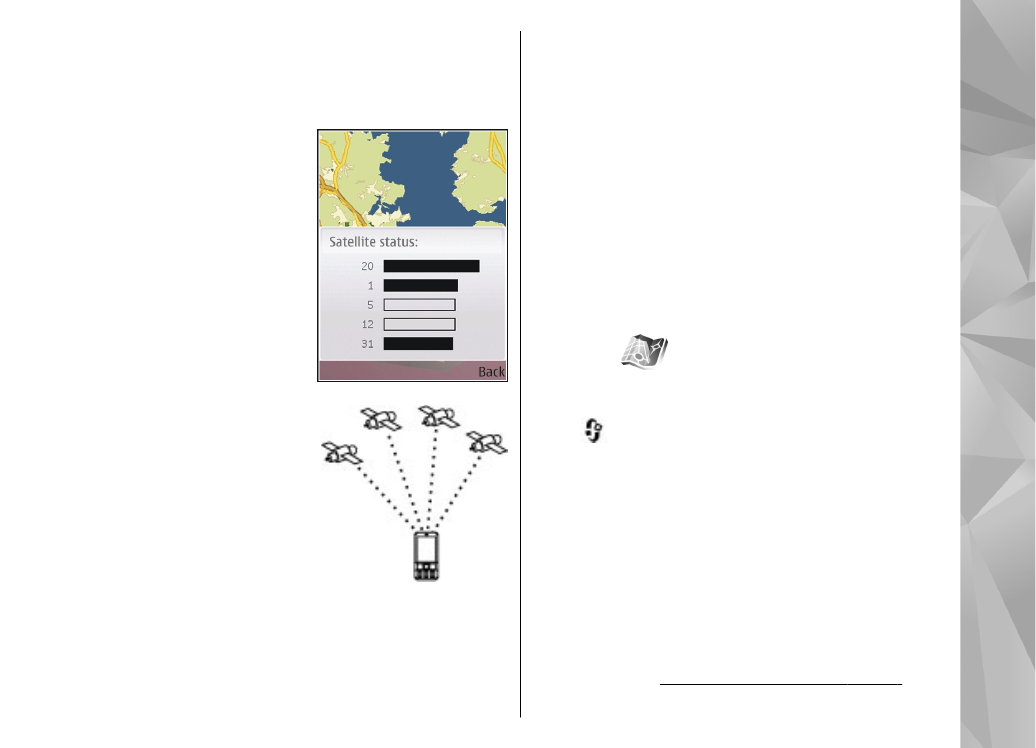
About satellite signals
If your device cannot find the satellite signal,
consider the following:
●
If you are indoors, go outdoors to receive a better
signal.
●
If you are outdoors, move to a more open space.
●
Ensure that
your hand does
not cover the
GPS antenna of
your device.
See "GPS
receiver"
, p. 58.
●
If the weather
conditions are bad, the signal strength may be
affected.
●
If the power saver turns on while the device is
attempting to establish a GPS connection, the
attempt is interrupted.
●
Establishing a GPS connection may take from a
couple of seconds to several minutes.
Satellite status
To check how many satellites your device has found,
and whether your device is receiving satellite
signals, press
, and select
Tools
>
58
Positioning (GPS)

Connectivity
>
GPS data
>
Position
>
Options
>
Satellite status
. Or, in the Maps
application, select
Options
>
Map view
>
GPS
info
.
If your device has found
satellites, a bar for each
satellite is shown in the
satellite info view. The
longer the bar, the
stronger the satellite
signal. When your device
has received enough data
from the satellite signal to
calculate the coordinates
of your location, the bar
turns black.
Initially your device must
receive signals from at
least four satellites to be
able to calculate the
coordinates of your
location. When the initial
calculation has been made,
it may be possible to
continue calculating the
coordinates of your location with three satellites.
However, the accuracy is generally better when
more satellites are found.